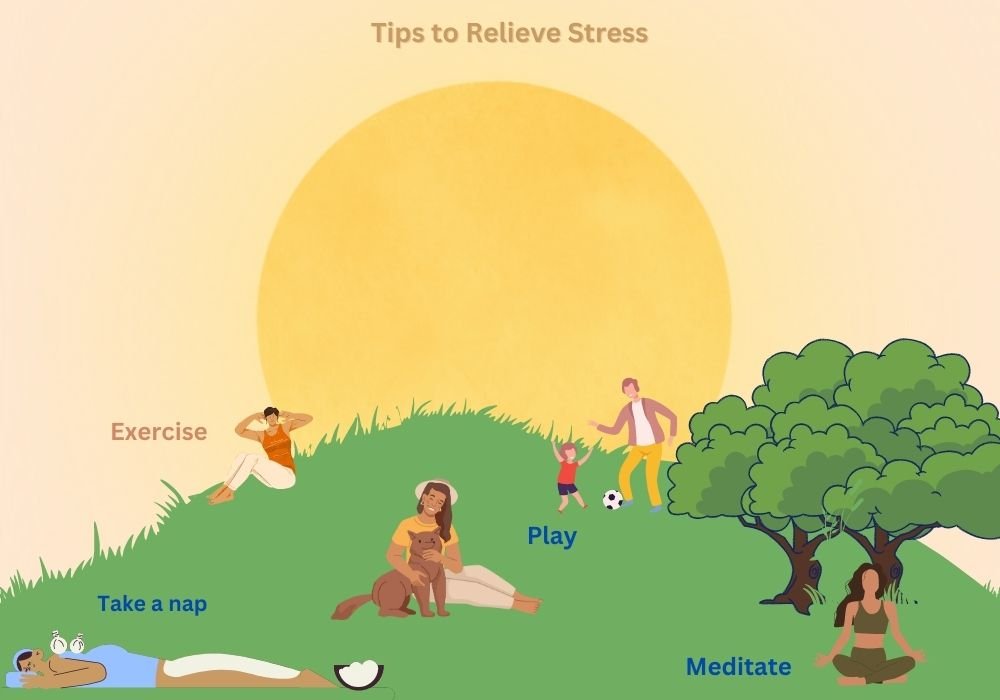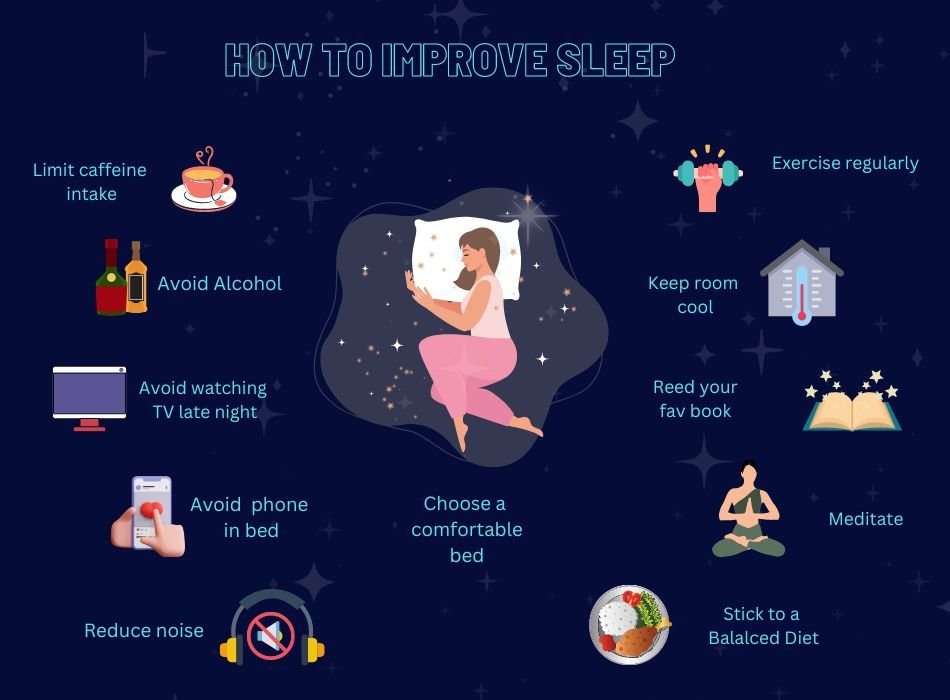Stress is something we all deal with in our lives. Stress can be detrimental to our health, whether it’s from work deadlines, family obligations, financial issues, or simply being too busy to relax. Luckily, there are many things we can do to help reduce stress levels.
Exercise
Exercise is not only essential for your physical health, but it’s also great for relieving stress. When you exercise, your body excretes endorphins, which are natural painkillers. Endorphins also help reduce anxiety and depression. If you feel stressed out, try taking a brisk walk outside or going for a run. You really don’t need to go to the gym; just find something that works for you and relieves stress.
Practice deep breathing
Engaging in deep breathing exercises activates your body’s innate capability to relax and calm itself. This induces a state of profound relaxation, which has the potential to alter the way in which your body reacts to stress.
Imagine taking a deep breath of pleasant air as you inhale through your nose. Just picture the air traveling all the way through your body. Imagine that you are releasing all of your stress and tension as you let your breath out.
Laugh
Share a joke with someone or watch a movie that makes you laugh. Laughter reduces stress and boosts your mood.
Eat Honey
Eat a tablespoon of honey to drown your worries in its soothing sweetness. Honey not only acts as a natural skin moisturizer and antibacterial but also contains ingredients that reduce inflammation in the brain. This means that honey is effective in treating both anxiety and depression.
Chew Gum
Chewing gum is one of the quickest ways to relieve tension. Chewing gum for even a few minutes can significantly reduce anxiety and lower cortisol levels.
Listen to music
Listening to your favorite song can put you in a good mood and help relieve stress. Classical music can be an incredibly calming way to wind down stress.
Give Yourself a Massage
One of the hormones that contribute to stress is cortisol, and research has shown that massage can help lower cortisol levels by 30 percent.
A reduced heart rate, increased levels of relaxation, and the release of feel-good chemicals are all associated with the stress-relieving benefits of massage. Once the stress levels are brought under control, negative feelings like anxiety and depression may become less severe.
Cuddle
Physical contact with another person has been shown to have a calming impact and improve one’s ability to cope with stress.
Research has shown that having healthy physical contact and engaging in sexual activity ease feelings of stress and loneliness. These kinds of touch have the potential to help release oxytocin and bring cortisol levels down. As a result, your blood pressure and heart rate drop-down, which helps you feel relaxed.
Spend time with children
Spending time with kids or playing with them diverts your attention from stress and puts you in a good mood.
Eat well
Eating nutritious foods can help you feel happier and healthier. Foods high in protein and fiber, like beans, nuts, and whole grains, are good choices.
Drink water
Drinking plenty of water keeps your body hydrated and helps flush toxins from your body.
Get Outside
Take time to enjoy nature. Go hiking, camping, fishing, swimming, or any activity that gets you closer to Mother Nature. Spending some time in nature can help you unwind and de-stress.
Play or Read
Reading a good book or playing your favorite game can put you in a good mood and relieve stress.
Volunteer
Helping others gives you a sense of purpose and fulfillment.
Write It Down
Writing down your feelings can help you process them and move forward.
Socialize
Spend time with friends and family. Talking about problems and their solutions makes us feel less anxious.
Have a bath
It has been found that having a bath actually makes you feel calm and relaxed.
Reduce your caffeine intake
Caffeine is a molecule found in various beverages and foods, including coffee, chocolate, tea, and energy drinks. Caffeine is known to activate the central nervous system. Consuming an excessive amount may make anxious feelings even more severe and intense.
In addition, excessive use may disrupt your normal sleep patterns. As a result, this may lead to increased levels of tension and worry.
Sleep
Sleep is very important for relieving stress. If nothing works for you, go for a nap or sleep. You will wake up refreshed and relaxed.
Conclusion
Stress is inevitable, but there are many things we can implement to manage it. The first step is recognizing that stress is a natural response to life’s challenges. When we face stressful situations, our bodies release adrenaline into our bloodstream, which causes us to become alert and focused. However, if we don’t learn to manage our stress, it can lead to anxiety, depression, and physical health problems.
If you find yourself feeling overwhelmed by stress, try one of these quick ways to relieve it.



